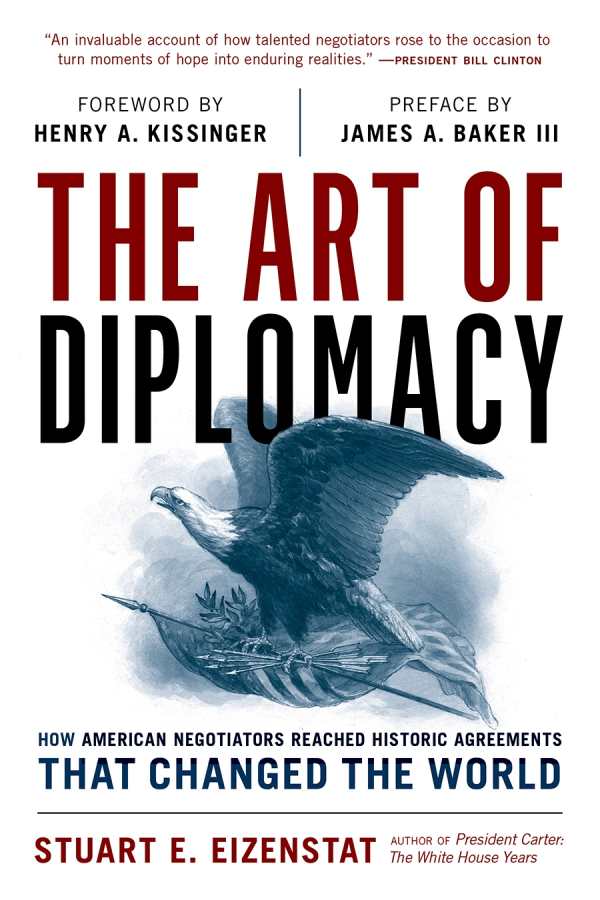The Art of Diplomacy
How American Negotiators Reached Historic Agreements That Changed the World
A magisterial tome on the international negotiations that shaped modern American history, Stuart E. Eizenstat’s The Art of Diplomacy gets down to the brass tacks of foreign affairs.
An ode to diplomacy’s power and fickleness, this book hopscotches from intimate, in-the-room portraits of what goes into diplomatic deals to expert accounts of the great American negotiators. Henry Kissinger’s “triangular diplomacy,” wedging the US between China and the Soviet Union to promote global stability, is recalled as an example of how, for better or worse, diplomacy can “usher history to places that few would have thought possible.” Unpredictability and trade-offs are a recurring theme in the cases detailed here, too. But what sets the book apart is its prioritization of the individual actors who broker international decisions. In the search for “win-win” compromises, dinners, sporting events, and all manner of creative avenues for engendering trust and goodwill become paramount.
Both a primer on how to negotiate and a niche history of the last eight decades in world politics, the book includes hundreds of interviews with top-ranking officials and memories of Eizenstat’s own experiences negotiating. It transitions from what could have been done better (“desperation from the U.S. mediators…emboldened [Arafat] to take a stronger position in the negotiations” that failed at the 2000 Camp David summit) toward pragmatic advice for approaching today’s raging international crises (to achieve peace in Ukraine, Eizenstat says, “it will be essential that there be more than a fragile ceasefire or another set of ‘assurances’ that Russia can violate”) generate countless insights. These are codified into the thirteen diplomatic precepts that conclude the book.
Grand in scope and grounded in decades of experience, The Art of Diplomacy is a compelling work of political history aimed at the diplomatic negotiators of tomorrow.
Reviewed by
Willem Marx
Disclosure: This article is not an endorsement, but a review. The publisher of this book provided free copies of the book to have their book reviewed by a professional reviewer. No fee was paid by the publisher for this review. Foreword Reviews only recommends books that we love. Foreword Magazine, Inc. is disclosing this in accordance with the Federal Trade Commission’s 16 CFR, Part 255.

